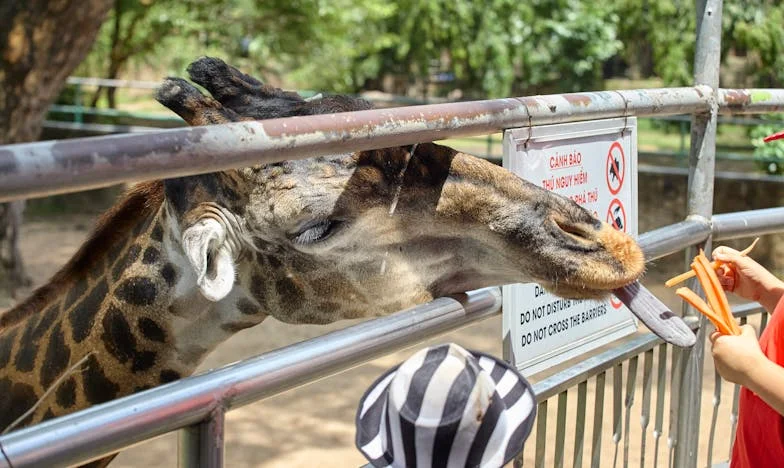Closer to My Mother-in-Law Than My Own Mother: The Bitter Truth of My Life
“You’re coming for Thanksgiving, right?” My mother’s voice on the phone is sharp, almost accusatory. I can picture her standing in the kitchen of my childhood home in Des Moines, Iowa, the same faded wallpaper, her arms crossed, expecting the world to bend around her moods.
I hesitate, the silence growing heavy. “Actually, Mom, I’m… I’m having dinner with the Harrisons.”
There’s a pause, then a scoff. “Of course. With your precious mother-in-law. Well, I hope she cooks your turkey just the way you like it.”
I hang up, my hands trembling. How did I get here? How did Linda—my husband’s mom—become the woman I confide in, bake cookies with, cry to at midnight when the world feels too heavy? And why does the woman who gave birth to me feel like a stranger?
I was ten when I first realized my mother didn’t see me. Not really. She saw report cards, piano recitals, the shadow of a girl who would never be as calm, as obedient, as easy as she wanted. If I got sick, she’d sigh and tell me not to make a fuss. When I won my first spelling bee, she asked if I could help with chores instead of celebrating. Dad left when I was twelve, and she folded into herself, leaving me to tiptoe around her moods.
College was my escape. I met Mike sophomore year at the University of Iowa, and everything about his family felt foreign at first. His mom, Linda, hugged me the very first time we met. She remembered my favorite color, asked about my classes, slipped me notes that said, “You got this!” on exam days. When Mike proposed, Linda took me dress shopping. She held my hand through my panic attacks, the ones I never told my mom about.
After the wedding, we moved to Minneapolis, halfway between my mom and the Harrisons. I called my mother every Sunday. The conversations were stiff, full of weather updates and complaints about neighbors. If I revealed a struggle—work stress, a fight with Mike—she brushed it off. “You have nothing to complain about. At your age, I was raising you alone.”
But Linda listened. She’d text me at 7 AM: “Thinking of you. Coffee soon?” She never judged, never compared. When I miscarried our first child, I couldn’t even bring myself to tell my mom. I called Linda, sobbing. She drove three hours in a snowstorm, held me while I broke apart, made soup, and tidied the house. My mother found out weeks later through my aunt. Her only comment: “Well, these things happen. You’ll try again.”
Mike noticed, of course. “You don’t have to keep trying with her, you know,” he said one night as I wept over another birthday card signed, “Love, Mom”—no message, no warmth.
“She’s my mom,” I whispered, the words tasting bitter. “I have to.”
I tried. I invited her to graduations, to our housewarming, to our daughter Lily’s first birthday. She always found a reason not to come. Too busy, too tired, too far. Linda, meanwhile, was there for every milestone. She held Lily so I could shower, slipped me casseroles when postpartum depression left me hollow, taught me how to sew a Halloween costume when I confessed I’d never learned.
The first time I called Linda “Mom,” it slipped out quietly—almost by accident. We were sitting on my porch, Lily asleep inside, the sun painting everything gold. Linda just smiled and squeezed my hand, as if she’d been waiting for me to say it all along.
My mother found out through Facebook. She called, furious. “How dare you? I’m your mother. Not her.”
“You haven’t been for a long time,” I said, my voice shaking. “Not really.”
She hung up on me. I cried for hours, the guilt choking me, old wounds bleeding anew. But as the weeks passed, I realized I was lighter. I stopped calling every Sunday. I started spending more weekends with the Harrisons, letting Linda teach Lily how to bake, how to garden, how to laugh at life’s messes.
Last year, my mother had a health scare. I drove down, stayed by her hospital bed, did everything a daughter should. But when she was better, she snapped back to old patterns—cold, critical, distant. I left, heartbroken all over again.
My therapist once asked me, “Why do you keep seeking love where you’ve only found pain?” I didn’t have an answer then. Maybe I still don’t.
This Thanksgiving, I set the table at Linda’s house, helping Lily arrange pinecones and candles. Linda hums in the kitchen, coaxing sweet potatoes into something magical. Mike and his dad joke in the living room. There’s laughter, warmth, a sense of belonging I never knew I needed.
My phone buzzes—a text from my mom. “Have a nice Thanksgiving.”
I stare at the screen, my heart aching and hopeful all at once. Maybe one day she’ll see me. Maybe she won’t. But I have a family here. I chose them, and they chose me back.
I look at Lily, her face lit by candlelight, and whisper, “Will I ever stop longing for the love I never had, or is it enough to cherish the love I’ve found?”
